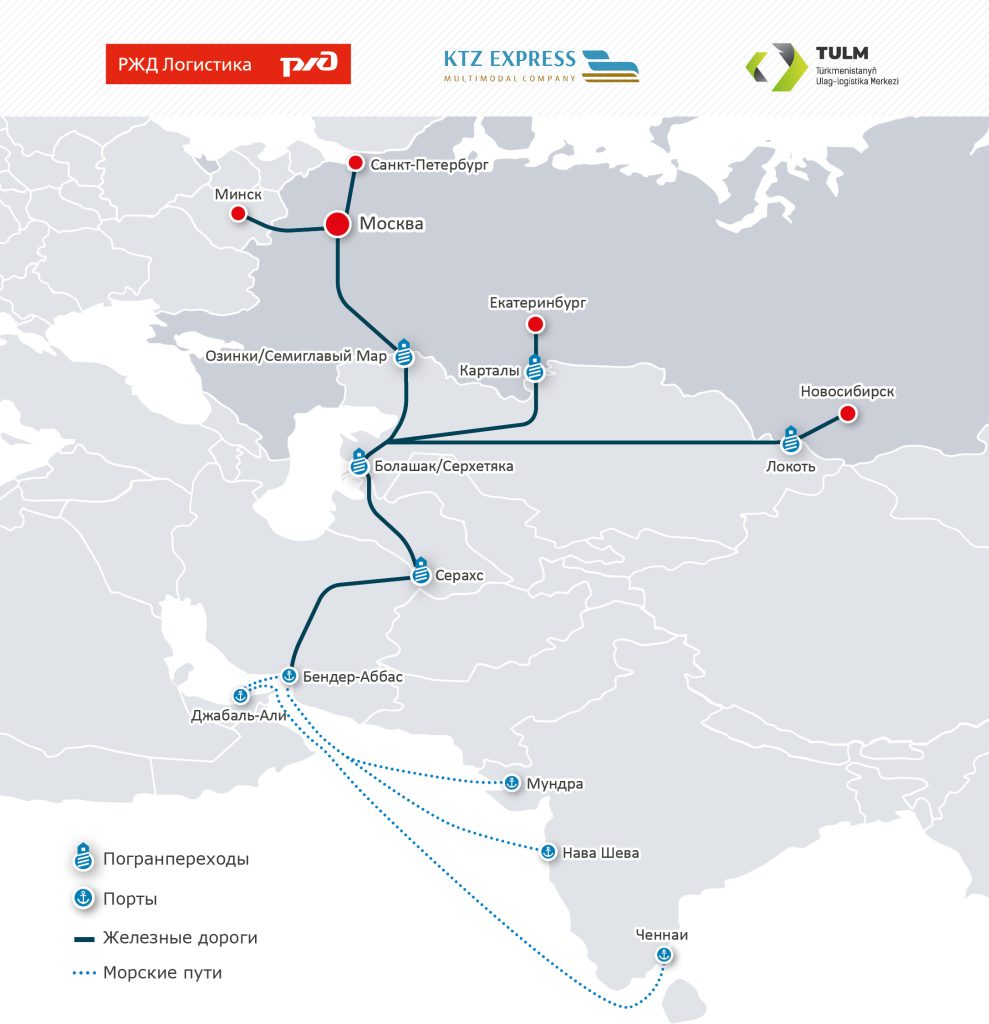Elvira Kadyrova
The International North-South Transit corridor (INSTC) actively promoted by Russia connects the Eurasian Economic Union, Central Asia, the Caucasus, South Asia, East Africa and the Middle East by the shortest routes. Its eastern branch, overlapping with the route of the Kazakhstan-Turkmenistan-Iran railway, is one of the essential links.
Kazakhstan is making significant efforts to expand traffic flows along this route.
“We have activated the work of the eastern branch of the corridor through the Kazakhstan–Turkmenistan–Iran railway. In June 2022, a pilot train of 40 units of 40-foot containers with construction materials from Russia to India, was launched”, Deputy Prime Minister – Minister of Trade and Integration of Kazakhstan Serik Zhumangarin said recently, speaking at the Forum of Interregional Cooperation between Kazakhstan and Russia.
According to him, in January-September 2022, 79.2 thousand tons of cargo were transported in this direction, which is 8 times more than in 2021.
However, the Eurasian Development Bank’s survey asserts barriers and unresolved soft infrastructure issues hamper the INSTC’s success.
The missing links of the transport and logistics infrastructure, the lack of a coordinated through railway tariff, paper procedures consume half of the transit time on crossing borders.
Kazakhstan believes that these shortcomings can be eliminated through digitalization of the process of controlling cargo flow at the borders, harmonization of customs procedures and tariff policy.
Some promising steps to streamline the tariff policy will be implemented in the very near future. From 2023 railway transportation on the eastern branch of the INSTC will be carried out at a reduced rate. This was announced on Tuesday, 29 November, by the First Deputy General Director of Russian Railways Sergey Pavlov at the TRANSTEC 2022 conference in St. Petersburg.
“Now we are working systematically with representatives of Kazakhstan, Turkmenistan, Iran to ensure the seamless operation of the entire service. We have already agreed on tariff benefits in order for our shippers to use a single through tariff for the entire route since new year,” he said.
At the same time, major infrastructure investments will be necessary to boost the corridor’s attractiveness and competitiveness.
“The North-South international transport Corridor, which is being created today by Russia together with its Caspian Five allies, means both logistical and geopolitical independence. This corridor will become a stable trading instrument, a major international logistics hub. However, it takes time and investment to make it work in full force. There are also risks that need to be accepted and moved forward,” opined Russian Senator Andrey Kutepov.
The EDB has collected data on 102 projects currently being implemented or planned for the period up to 2030, totaling over US $38 billion.
The top priority projects worth about US $ 11 billion include construction of the Rasht–Astara railway section, construction of the second main tracks and electrification of railway lines in Azerbaijan, Iran, Kazakhstan and Turkmenistan, construction of road bypasses, bringing inland waterways and shipping channels into a regulatory state, etc.
The implementation of investment projects may result in an expansion of transport and forwarding services market, an improvement in the quality of logistics and container services, forging mutually beneficial cooperation between the INSTC countries and new logistics. ///nCa, 30 November 2022
